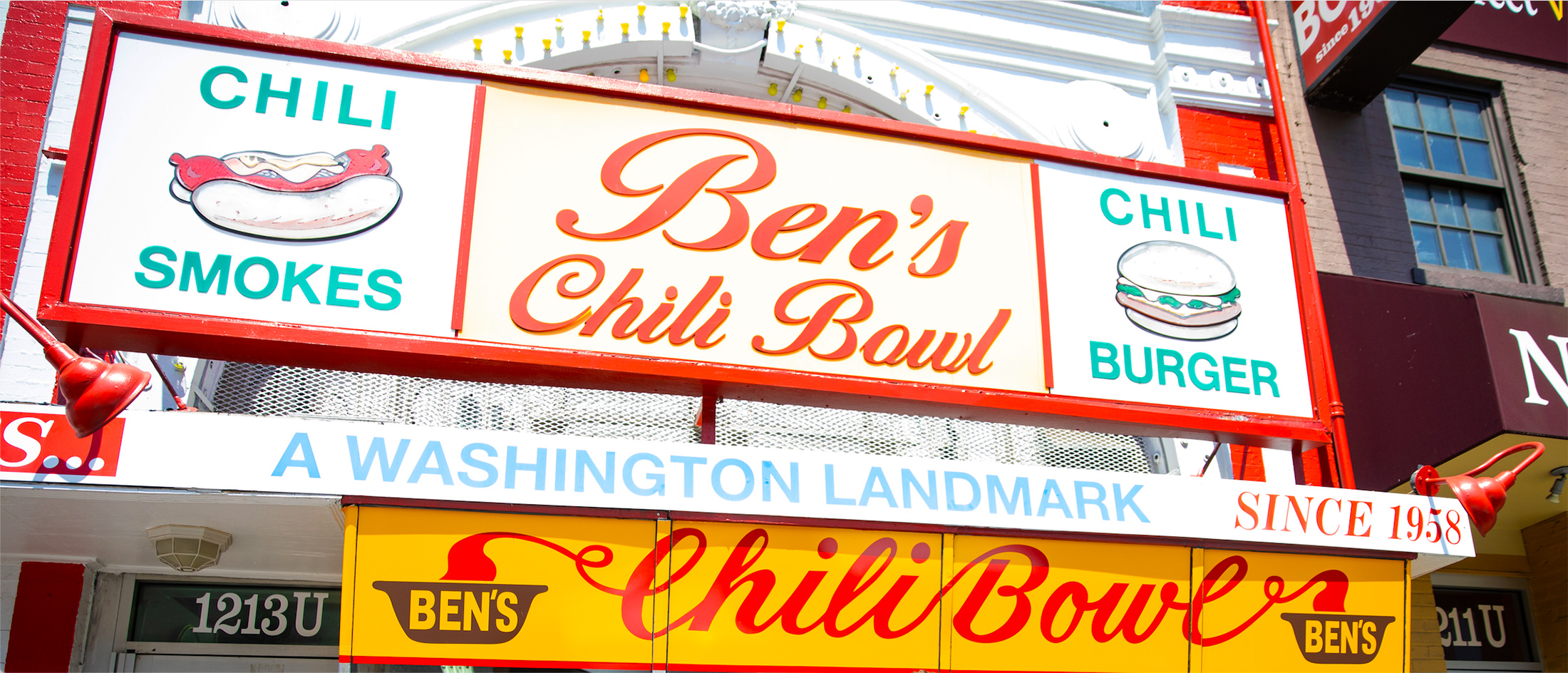First Generation College Student Studies Race, Identity and Community in Thesis on Ben’s Chili Bowl
Sonali Mirpuri (C’20) was interested in studying how first-generation Indian students such as herself navigated the intersections of race, identity and community at Georgetown. After meeting with the family that started the famous Ben’s Chili Bowl chain in Washington, D.C., Mirpuri gained rare insights that helped her complete a thesis on the microhistory of this community staple.
Ben’s Chili Bowl: A Microhistory

Sonali Mirpuri (C’20)
Mirpuri began working as a research assistant for Department of History professor Ananya Chakravarti who launched Remembering YoU, a community archiving initiative to preserve this historic U-Street neighborhood. The project aims to document the history of an area that is now unrecognizable from what it was a mere 60 years ago.
Chakravarti and Mirpuri met with the owners of the few remaining original businesses on U-Street, including the Ali family who opened the landmark restaurant Ben’s Chili Bowl. Though Mahaboob Ben Ali, the founder of the restaurant, passed away in 2009, his wife, Virginia Ali, and sons Sage, Nizam and Kamal Ali, who still run the business, were eager to speak with them.
Through these conversations, Mirpuri learned about the changes in the community over the years and the struggles that the Ali family overcame. As their discussions continued, the undergraduate realized that Ben Ali, an Indo-Trinidadian Muslim, had dealt with complex issues of identity throughout his life. Notwithstanding the adversity he faced, at times in the community and at others from his own family, he managed to create a thriving business that remained a community staple despite the turbidity of the area surrounding it.
It was then that Mirpuri decided to write a thesis that examined the notion of identity and how these identities are developed spatially and temporally through the microhistory of one family.
“I was fascinated by how Ali’s ideas of race and ethnicity helped him settle into a black community, and how this affected his other identities of being Muslim of Indian descent,” says Mirpuri.
Finding Your Identity
Ben Ali’s grandparents, originally from India, were sent to Trinidad as indentured laborers. He was raised in the town of San Juan, the first child of seven in a Muslim, Indo-Caribbean family. In 1945, Ali immigrated to the U.S. as a student, living in Nebraska and Pennsylvania before attending Howard University in Washington, D.C., where he fell in love with the U-Street community.
The U Street Corridor colloquially referred to during this time as Black Broadway due to the thriving black-owned entertainment venues and businesses, contained the nation’s largest urban black community.
When he and his wife Virginia Ali, a black woman from Washington, opened their restaurant in this vibrant community in 1958, Ali chose to call it Ben’s Chili Bowl as a nod to the American community he was now a part of in D.C.
This gets to the heart of Mirpuri’s thesis of identity negotiation, or how an individual chooses to present themselves.
“Identity is something that can be self-prescribed, but it is also something that can be ascribed by others,” says Mirpuri. “If you behave differently than someone expects you to based off of X criteria, it can cause them to react negatively. I think that this is partially why Ben chose to lean more toward his black identity than his other identities. The black community functions on the ideology of inclusivity.”
Withstanding the Test of Time
At the time that Ali started his restaurant, U-Street was a neighborhood full of black culture. Frequently called “the hub of vice,” this neighborhood was a popular destination for white and black individuals to listen to jazz, dance in clubs, or eat the hot dogs made at the Chili Bowl.
But this all changed with the riots in 1968 that left the neighborhood in ruins and drastically altered the atmosphere of the community. Violence and crime were rampant, ultimately causing formerly thriving establishments to close. Well-known institutions like the Lincoln Theatre boarded up its doors. Despite all of this turmoil, Ben’s Chili Bowl remained open.
The openness and inclusivity drew individuals to this restaurant regardless of race, class or economic turmoil. Mirpuri believes that this is because the restaurant gives back the sense of community that the area offered Ali in the first place.
“At Ben’s there would be people from every walk of life,” says Mirpuri. “There would be black panthers sitting next to white police officers. It’s a bit like Georgetown – once you enter, you are supposed to enjoy the people around you and leave behind prejudices at the door.”
In the 1990s, the area began to see signs of gentrification. Restorative projects like the reopening of the Lincoln Theatre were underway, and struggling businesses were replaced by towering condos. Today, the community is now predominantly white, upper-middle class and almost completely devoid of any sense of community.
Lee’s Flower Shop and the Industrial Bank are the only other black-owned businesses that remain open on U-Street. But the Chili Bowl still stands, now run by Ali’s sons, a constant in the ever-changing identity of the neighborhood. However, due to the COVID-19 pandemic, this community staple is now struggling.
The U Street restaurant, which once had expanded to seven locations, is now the only restaurant still open, operating with a skeleton crew, and is entirely reliant on take-out orders. According to ABC News, the Alis said that they won’t lose the location after everything they have been through to maintain it, and that the Chili Bowl will remain open, whatever it takes.
Reflecting on Her Own Identity
Mirpuri says that studying someone who has so many intersecting identities has helped her shape her own.
“I’ve come to realize that there is a real fluidity with identity,” says Mirpuri. “Just because someone appears a certain way it doesn’t mean that they are actually that way. My experience as a South Asian woman is not the same as even another South Asian woman. Even though we may have certain experiences that are relatable, identity is personal. Even my sister and I have different experiences. I feel very fortunate that I have had the privilege to reflect.”
